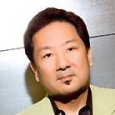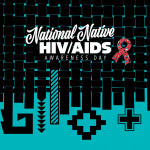I’m getting my COVID vaccine today. Words cannot adequately express my gratitude. The vaccine means I get to live. I get to survive another pandemic. I sobbed when I got the news. However, I am also painfully aware of my first world privilege. As the HIV movement did after the International AIDS Conference in Durban, South Africa, we must now stand in global solidarity for Covid vaccines for the world. NMAC is truly thankful to Congress and the President for the $3.5 Billion for the Global Fund and $250 million for PEPFAR that was part of the American Rescue Plan Act. As we tested the COVID vaccine using the HIV vaccine infrastructure, we will now use the international HIV infrastructure to address COVID worldwide.
Leadership Matters. As we are seeing first hand, leadership matters when working to end a worldwide pandemic, leadership and money. The same is true for ending HIV. Are you the leader our movement needs to end the HIV epidemic? Ending HIV requires tens of thousands of leaders. However, they may look very different. The HIV community is not exempt from the hopes/tensions the country feels about race and Black Lives Matter. It’s the struggle for the soul and future of America. COVID showed the need for better, different, expanded healthcare infrastructures. Not just health services, but as HIV taught us, much-needed wrap around services like housing, mental health and food security. Our movement needs to build and support agencies that not only end HIV, but also address the multitude of challenges facing our community. COVID shined a spotlight on the lack of healthcare for too many. Agencies need to expand their mix of services to address multiple needs in our diverse communities.
Communities have diverse needs. They can’t and won’t go to multiple agencies for different services. After COVID, community expects to get services virtually, yet the digital divide is real. Getting an appointment for a vaccine depends on access to technology, yet too many in our communities do not have this access or speak English as a second language. Consumers want agencies that provide a multitude of services, in multiple languages. Organizations must be prepared for change. Some of us are dinosaurs and don’t want to adapt, but we won’t have a choice. The world is changing and there is a right and wrong side in history. To be clear, I’m not saying all older executive directors need to resign, but they do need to look at the role they are playing in fighting or maintaining systems that oppress too many. I believe COVID has changed more than where we work, it has changed what we value and who we want to be. Like so many, I made a pact with God that if I survived COVID, I would be a better person. I would fight harder for my community and not be afraid to ask for grace.
COVID also highlighted our differences. Some people always wore a mask, others usually, and too many never wore a mask. Sound familiar? Substitute condoms for masks and it’s the identical question. We’ve learned how hard it is to get everyone to wear masks and condoms. Yet we can’t give up on either. Until everyone gets the vaccine, we need them.
Thank you, Mr. President for your words about the potential for a more normal 4th of July, for letting me dream. After my vaccine, I look forward to watching the fireworks on the national mall. We still do not fully understand the changes that are about to happen in our world. It seems impossible to go back to the way things were before COVID. How life will change depends on our ability to absorb and integrate the lessons of COVID, the lessons of Black Lives Matter, and the lessons of losing everything. COVID exposed the inequities in the world and hopefully we can no longer look away. As we have seen, access to healthcare is not a luxury, it is a core value for all Americans. Now we understand the need to improve the healthcare infrastructure for all communities. Like the world used the infrastructure for HIV vaccines and the Global Fund, maybe it’s time to use the domestic HIV service infrastructure to buildout our COVID services. Healthcare by itself is not the solution. Domestic HIV services documented the critical importance of wrap around services like housing, mental health and food security. How do we take the lessons learned from HIV and use it as the foundation to build the healthcare infrastructure needed in America after COVID?
Yours in the struggle,
Paul Kawata








Comments
Comments